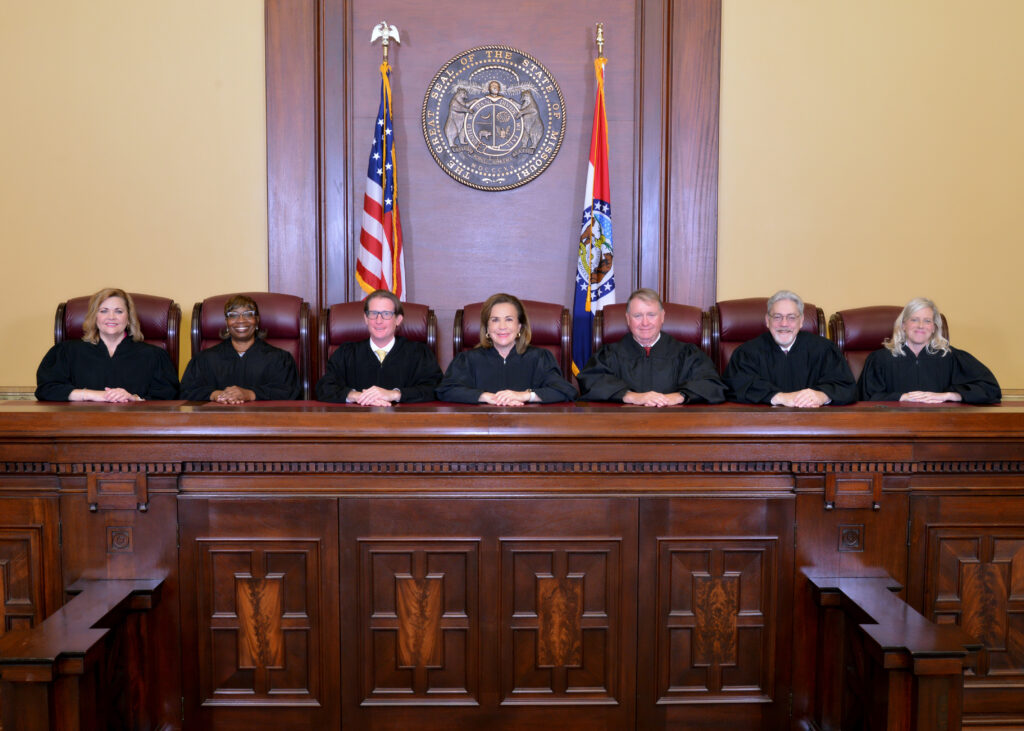
On April 29th, 2025, the Missouri Supreme Court upheld Prop A, a ballot measure raising the state’s minimum wage to $15 per hour by 2026 and mandating paid sick leave for workers, rejecting claims of misleading ballot language. While the unanimous decision upheld the November 2024 election results, it avoided ruling on whether the initiative violated Missouri’s constitutional ban on multi-subject legislation- a question that remains unresolved and contentious.
The “Germane Connection” Standard
The single-subject rule (Article III, Section 23) is central to Missouri’s legislative process, which requires bills and ballot initiatives to address only one topic, clearly expressed in their title. Courts use the “germane connection” test to determine compliance: provisions must have a natural, logical relationship to the bill’s core purpose.
- Definition: A “germane connection” exists when amendments or provisions “fairly relate, have a natural connection with, or are congruous to” the bill’s declared subject[1][2][3].
- Purpose: Prevents “logrolling”-combining unrelated policies to secure passage- and ensures transparency for legislators and voters[4][5].
Historical Challenges to Multi-Subject Bills
Missouri courts have invalidated several laws for violating this standard:
- Hammerschmidt v. Boone County (1994)
- A bill titled “relating to elections” included provisions allowing counties to adopt new government structures.
- Rizzo v. State (2006)
- A bill regulating political subdivisions added a clause barring felons from public office.
- House Bill 1606 (2022)
- A bill about “political subdivisions” criminalized homeless encampments on state land.
These cases underscore the judiciary’s strict enforcement of the single-subject rule, often invalidating laws that merge disparate policies.
Prop A’s Controversy
Proposition A combined two policies:
- Raising the minimum wage to $15/hour by 2026.
- Requiring employers to provide 1 hour of paid sick leave for every 30 hours worked.
Business groups, including the Missouri Chamber of Commerce, argued the measure violated the single-subject rule by addressing “wages” and “sick leave”-two distinct issues[6][7]. They contended voters were denied a choice on separate policies and that the ballot title obscured details like domestic violence leave[6].
The Court’s Decision on Prop A
In RAYMOND MCCARTY, et al. v. MISSOURI SECRETARY OF STATE, et al. (2025), the court:
- Upheld Prop A’s ballot language, ruling the summary and fiscal note were not misleading[8][7][9].
- Declined to rule on the single-subject challenge, citing lack of jurisdiction over post-election ballot title disputes[10][7].
- Emphasized deference to voter intent (58% approval), stating no evidence showed irregularities affected the outcome[8][7].
Judge Robin Ransom, in a concurring opinion, argued courts cannot revisit ballot titles after elections, leaving the single-subject question unresolved[7].
Implications and Ongoing Battles
While Prop A survives, its dual mandates face legislative pushback:
- House Bill 567: A GOP-backed bill to repeal sick leave provisions awaits Senate action[8][10].
- Unresolvable Questions: The court’s avoidance of the “germane connection” test leaves ambiguity for future ballot initiatives combining multiple reforms. It shows that legal challenges must be made before initiative petition measures are voted on.
Labor advocates, including Terrence Wise of Stand Up KC, hailed the ruling as a victory for workers[8]. Critics warn it sets a precedent for bundling unrelated policies, undermining constitutional safeguards[7].
Conclusion
Missouri’s single-subject rule remains a forceful check on legislative overreach, but its application to voter-driven initiatives like Prop A is unsettled. The Supreme Court’s prioritization of electoral intent over procedural disputes signals a cautious approach, one that may reshape how complex reforms are framed in Missouri’s polarized political arena. For now, the ruling leaves employers and lawmakers grappling with Prop A’s implementation, even as legal and legislative challenges persist.
- https://scholarship.law.missouri.edu/cgi/viewcontent.cgi?article=1137&context=jesl
- https://www.courts.mo.gov/file.jsp?id=203719
- https://documents.ncsl.org/wwwncsl/LegislativeStaff/ASLCS/ILP/00Tab5Pt5.pdf
- https://statecourtreport.org/our-work/analysis-opinion/single-subject-rules-can-prevent-perverse-outcomes-give-judges-enormous
- https://www.courts.mo.gov/file.jsp?id=126500
- https://thebeaconnews.org/stories/2024/12/26/new-missouri-minimum-wage-and-sick-leave-rules-under-attack/
- https://khqa.com/news/local/missouri-supreme-court-upholds-proposition-a-rejects-constitutional-challenge
- https://www.kcur.org/politics-elections-and-government/2025-04-29/missouri-supreme-court-paid-sick-leave-proposition-a
- https://www.usnews.com/news/us/articles/2025-04-29/missouri-court-upholds-voter-approval-of-minimum-wage-and-paid-sick-leave-initiative
- https://www.missourinet.com/2025/04/29/supreme-court-ruling-out-missouris-paid-sick-leave-minimum-wage-law-will-stand-for-now/

